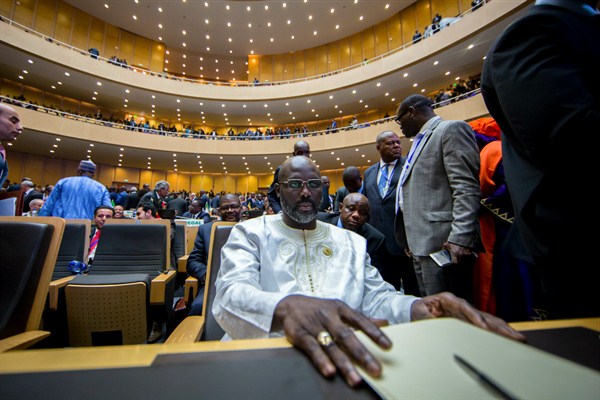In February, Liberia’s former president, Ellen Johnson Sirleaf, was awarded the prestigious $5 million Ibrahim Prize for Achievement in African Leadership, becoming the fifth winner since the prize was established in 2007. It was the latest in a long line of honors acknowledging her efforts to rehabilitate Liberia’s democracy after more than a decade of civil conflict.
In the eyes of pro-democracy activists, however, Sirleaf’s record was far from perfect. One of the most commonly cited weak spots was her commitment to freedom of the press. Her time in office certainly represented an improvement over that of her predecessor, the warlord-turned-president Charles Taylor, who had no tolerance for independent reporting. But during Sirleaf’s 12 years in office, her government failed to reform libel laws that led to the jailing of journalists and the shuttering of publications. Moreover, Freedom House consistently rated the media environment under Sirleaf as only “partly free,” citing frequent cases of intimidation and arbitrary arrests.
Yet three months into the term of her successor, the soccer star-turned-politician George Weah, Liberian journalists could be forgiven for wondering if Sirleaf’s presidency will represent a high-water mark in terms of the space they’re given to do their work. That’s because in recent weeks, two high-profile confrontations have highlighted hostility toward the press on the part of the new administration, including from Weah himself—an especially worrying development given that the country’s United Nations peacekeeping mission recently closed its doors, depriving journalists of a powerful ally.

